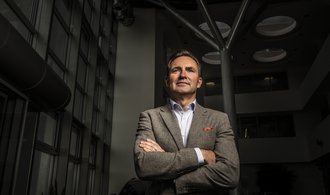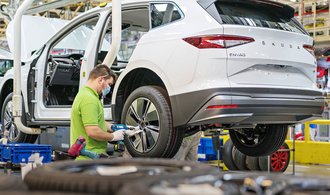Major changes in the group’s management stem from the long-running disputes between Diess and the unions. Ty Diess was incensed by statements about the necessary massive redundancies of up to 30,000 employees as part of the necessary savings. Diess later softened his statement, but the disputes persisted. According to information from the German media, Diess has the function of maintaining, focusing more on strategic issues. On the contrary, Brandstätter is to be responsible for the business in China – where the group is suffering from a significant drop in sales.
Whether the changes will actually take place will be decided by the Group Supervisory Board tomorrow. “However, it is very likely that a compromise will actually be made,” Spiegel said.
In addition to personnel issues, tomorrow’s Group Supervisory Board is to decide, among other things, on the direction of massive investments, which you can read about below.
Volkswagen miner. Huge investments in electromobility will also focus on raw materials
The Volkswagen Group’s massive investment of up to 30 billion euros, ie more than three-quarters of a trillion crowns, which will go primarily to battery and raw material factories, may include the purchase of a stake in one of the mining companies. The German car colossus would thus gain control of the entire supply chain, at the end of which there will be an increasingly large fleet of electric cars. The investment in mining is to be part of a five-year plan that VW’s supervisory board will receive on Thursday.
–
–
At the agency conference Reuters said Thomas Schmall, a member of VW’s board of directors responsible for technology. He stressed that the group must look after enough raw materials, including nickel and cobalt, which are important for the production of batteries for electric cars. The group is negotiating various forms of partnership, and could announce cooperation within a few weeks.
Ed Cropley v comments for Reuters, he mentions Australian lithium miner Pilbara Minerals, whose market capitalization at the time of writing exceeded the seven billion Australian dollars, ie 112 billion crowns, and the world’s largest cobalt producer Glencore with a value of almost fifty billion pounds, about 1.5 trillion crowns.
Electromobility: What are the plans of the EU and the world?
 –
––
–
–
• VIDEO Videohub
–
–
It is not yet clear how much of the total investment will come from the group’s coffers and what is financed by external partners. “It will depend on the models of the individual partnerships that we will establish in the coming months. It is essential for us to have control over technology, timing or costs, “Schmall said.
The investment will include six battery factories for electric cars. Even with their help, the German giant wants to catch up with the American leader Tesla. The cost of each factory will be between one and two billion euros, and one factory could be established in the Czech Republic. The decision is to be made next year.

–
–
The Group aims at the sustainability of the production chain. It wants to achieve carbon neutrality by 2050 at the latest. “This will close the circle. Perhaps it turns out that we deal with sustainability from the first step, mining, to the last, which is the life cycle of batteries, cars and recycling, “said Schmall.
VW has already invested around nine hundred million euros in joint activities with the Swedish battery manufacturer Northvolt, in which it has acquired a share of about one-fifth. A joint venture of companies is to be established, which should build a factory for the production of batteries in Germany.

–
–
Northvolt is to start production of premium battery cells for VW in 2023. Two years later, the Salzgitter plant in northern Germany will also start production. VW wants to build this together with the Chinese auto parts supplier Gotion High-Tech, which also deals with lithium-ion batteries.
However, investments also go the other way around, ie from miners to the automotive industry. For example, one of the largest mining companies in the world, the multinational colossus Rio Tinto, recently invested tens of millions of euros (hundreds of millions of crowns) in the Slovak company InoBat, businessman Marián Boček.. The investment, which was exclusively reported by the daily E15, is primarily to go to the development center and pilot line in Voderady near Bratislava, where InoBat works on premium batteries for electric cars.

–
–
Rio Tinto also owns one of the largest lithium mining projects in the world in the Serbian region of Jadar. The energy giant ČEZ, which is exploring the possibilities of lithium mining in Cínovec, has also invested in InoBat. InoBat is also interested in lithium supplies from the Czech Republic.
As electromobility grows, so does the business potential of mined materials. He documents this, for example turnaround in strategy mining company BHP Group. For several years, she tried to sell her Nickel West nickel division in western Australia. However, this is no longer the case, as BHP expects that high-quality nickel, which is used in the production of batteries, including those for electric cars, will become a scarce commodity within a few years.
“We evaluated the markets for all the materials used in the manufacture of batteries – nickel, cobalt and lithium,” Nickel West chief Eduard Haegel told Bloomberg earlier. “And we think that in the medium and long term, nickel will be associated with a certain margin – we think it is an attractive commodity,” he added.



